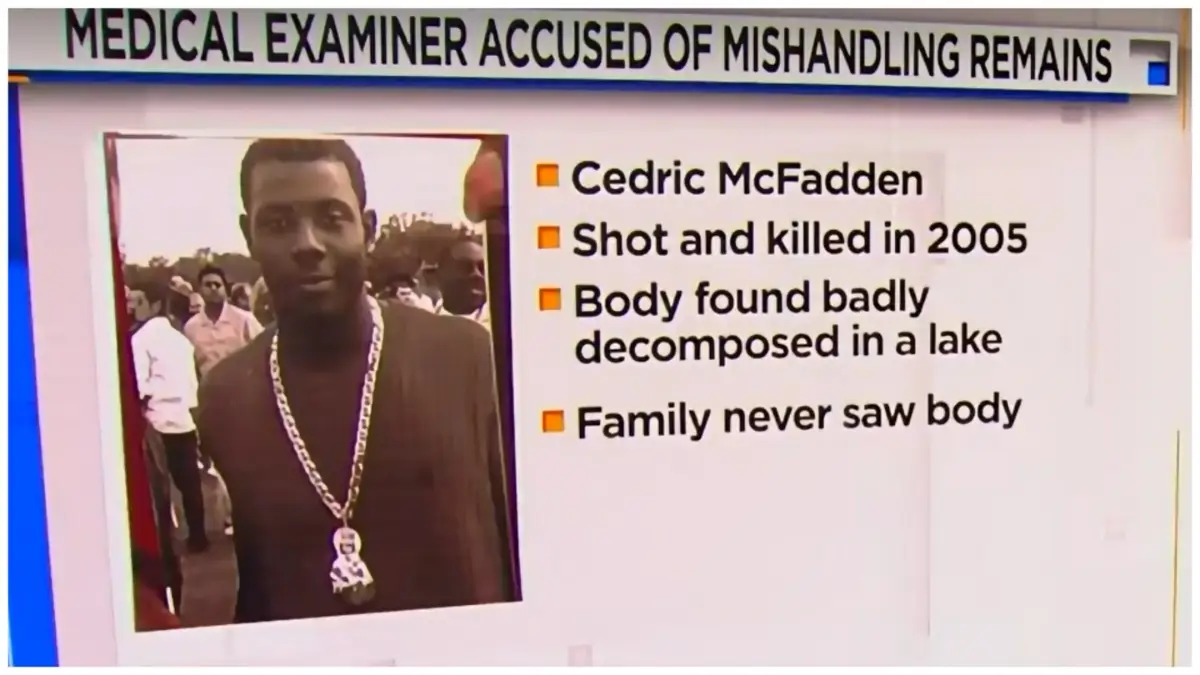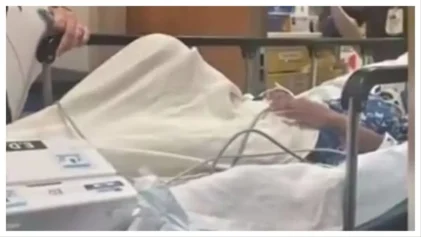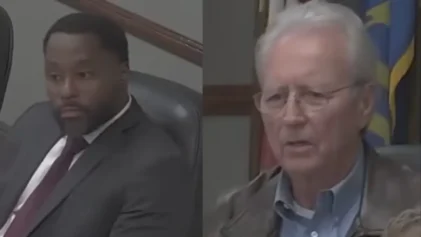The family of Cedric McFadden, a man robbed and murdered 20 years ago in Florida, can no longer keep quiet and is taking legal action after discovering some of his remains weren’t buried.
In February, the family received an alarming call from the medical examiner’s office that McFadden’s skull and a part of his spine had been discovered in a bin at the Lake County Medical Examiner’s Office.
The disclosure sent shock waves through the family, leading to more grief and outrage — and a second funeral for their deceased loved one nearly two decades later.

McFadden, 24 at the time of his death, was fatally shot during a robbery near Ocala, Florida, by David M. Lee, who admitted to the murder and led police to his partially submerged body in a pond in Bellview, reported the Ocala StarBanner at the time.
The medical examiner’s office conducted the autopsy and then released his badly decomposed body to a funeral home for burial. Due to the state of his body, the family chose not to have a viewing at the funeral and were unaware that his skull and part of his spine were missing.
“They found her son, Cedric Wayne McFadden’s skull and part of his spine in a bin, in their building, (nearly) 20 years after they were allegedly released to Summer’s Funeral Home in Ocala, Florida on June 15, 2005,” a release from attorney Ortavia Simon read via Click Orlando.
Simon announced this week that the family will file a lawsuit by Nov. 3 against the Lake County Medical Examiner’s Office for intentional infliction of emotional distress and interference with a body.
The family was additionally concerned by what they call the lack of proper records and the complete failure to comply with state policies in handling McFadden’s remains. It is the most “bizarre” case the attorney has ever worked on.
“20 years before the medical examiner’s office realized they didn’t release all of my client’s son’s remains! They didn’t check a bin for 20 years? You cannot make this stuff up,” Simon wrote on social media.
In a press conference on May 13, McFadden’s sister spoke out about the horrific discovery. “We’re hoping to bring justice,” said Jacqueline Forshee, adding, “I’m not sure if anyone else has been affected by this. The medical examiner needs to look at the processes and procedures of how they release remains and also informing the families better. [It] needs to be a tighter process,” she stated.
Forshee said when the chilling call came in on Feb 11, the representative from the state medical examiner’s office asked to speak to McFadden’s mother, Ruth Forbes. The two were at church together, and Forshee said they felt “rushed” to decide what to do with the skeletal remains.
“It took the bandage off of a wound, obviously. It caused a lot of stress,” she explained. “We had to go through a burial twice, which I feel was unnecessary.” Rather than unearthing McFadden’s casket, the family chose to place the newly discovered remains in a vault near the original burial site.
Standards for death investigation in the U.S. vary by state, but in Florida, all medical examiners are required to be physicians trained to perform autopsies (usually forensic pathologists) or pathology residents who are directly supervised. It’s unclear how such a mistake was made, and the medical examiner has not yet provided an explanation.


